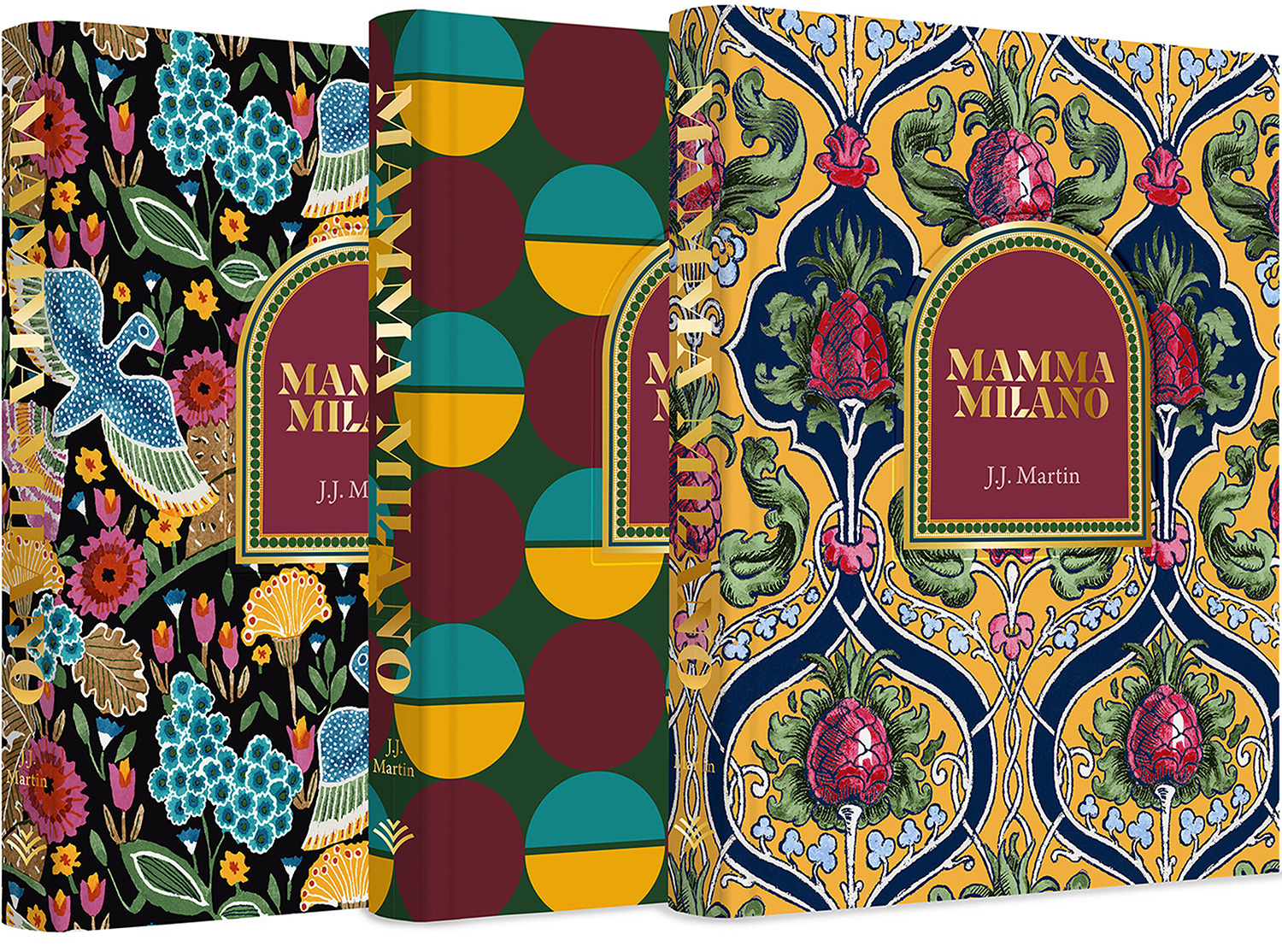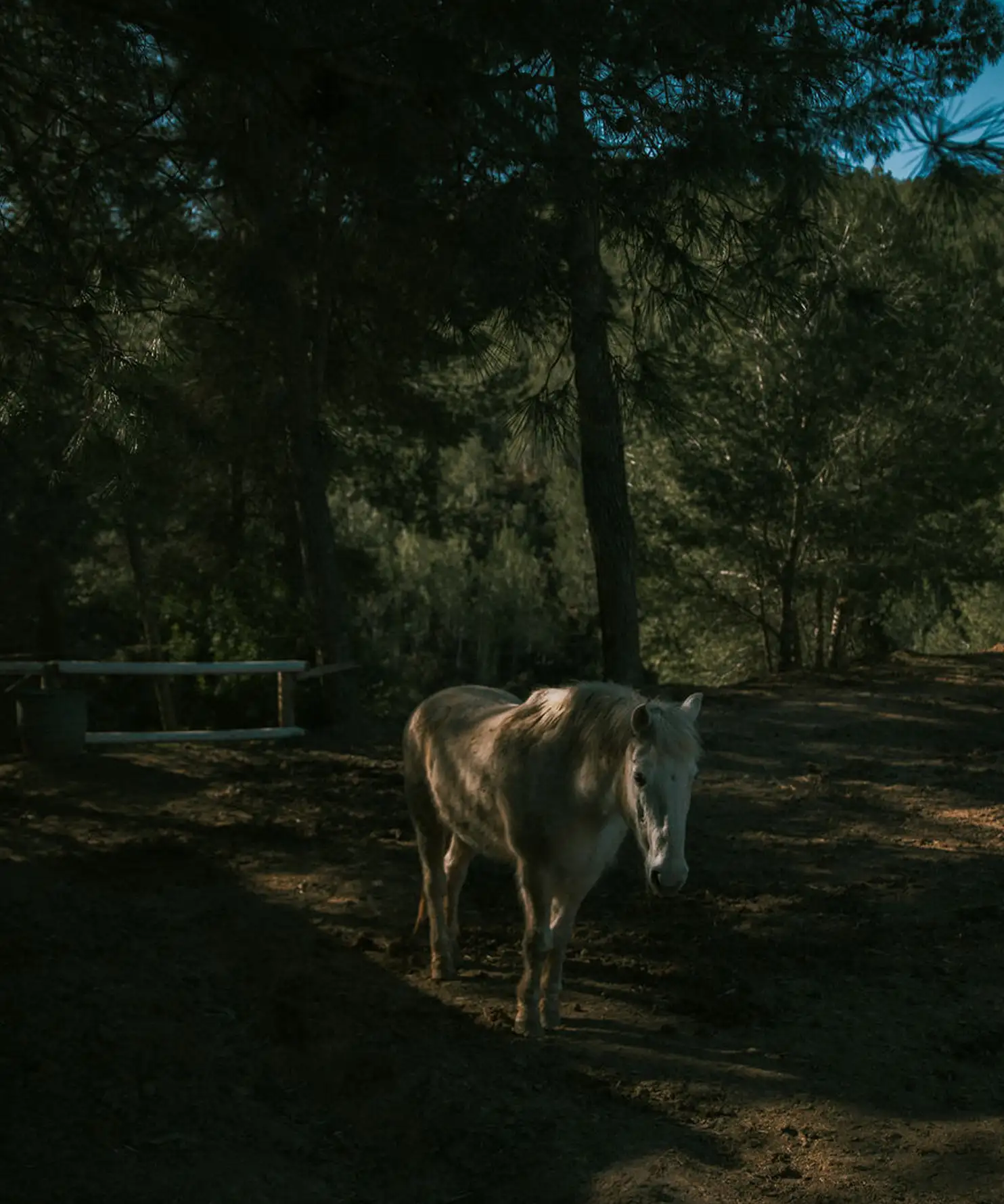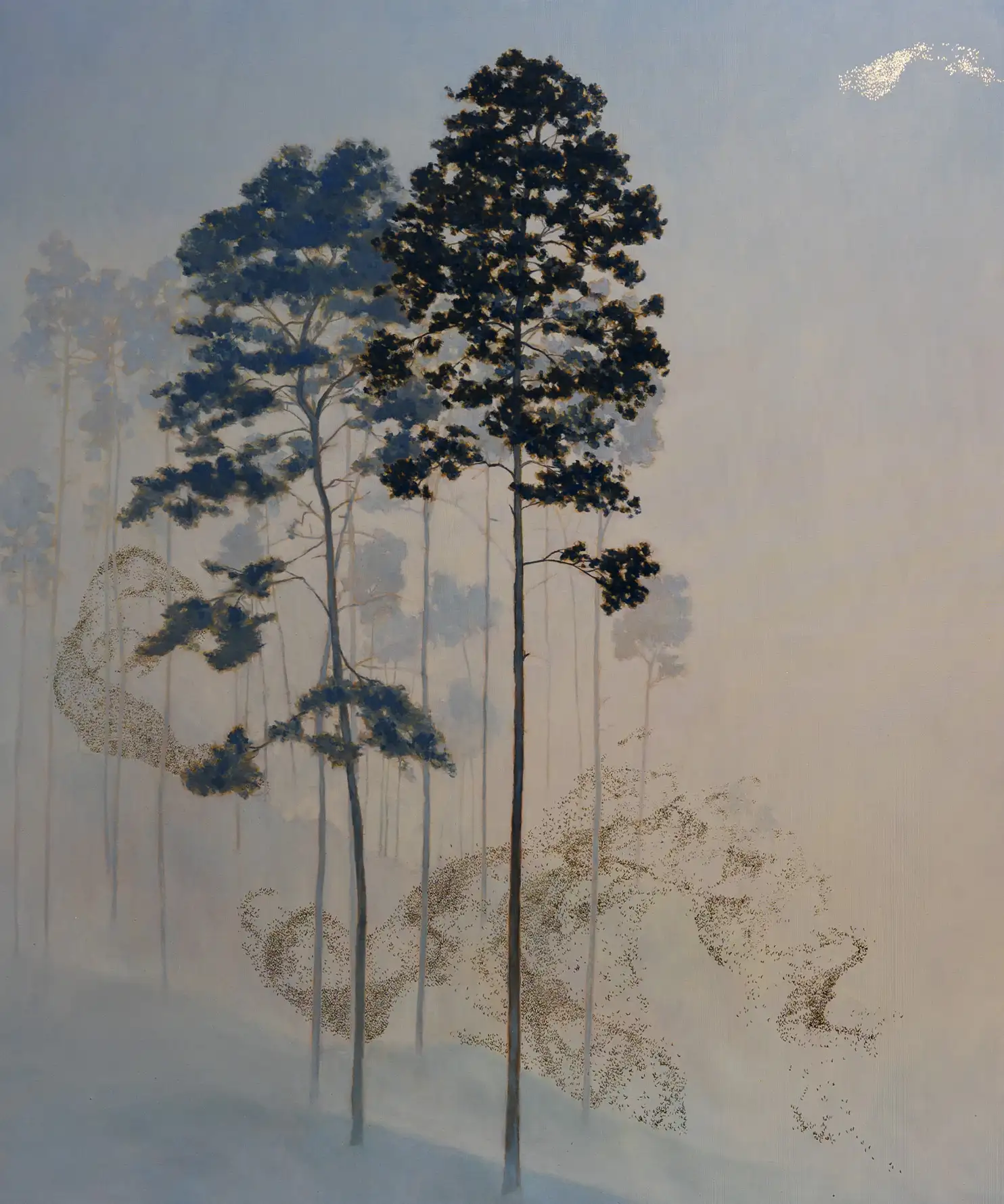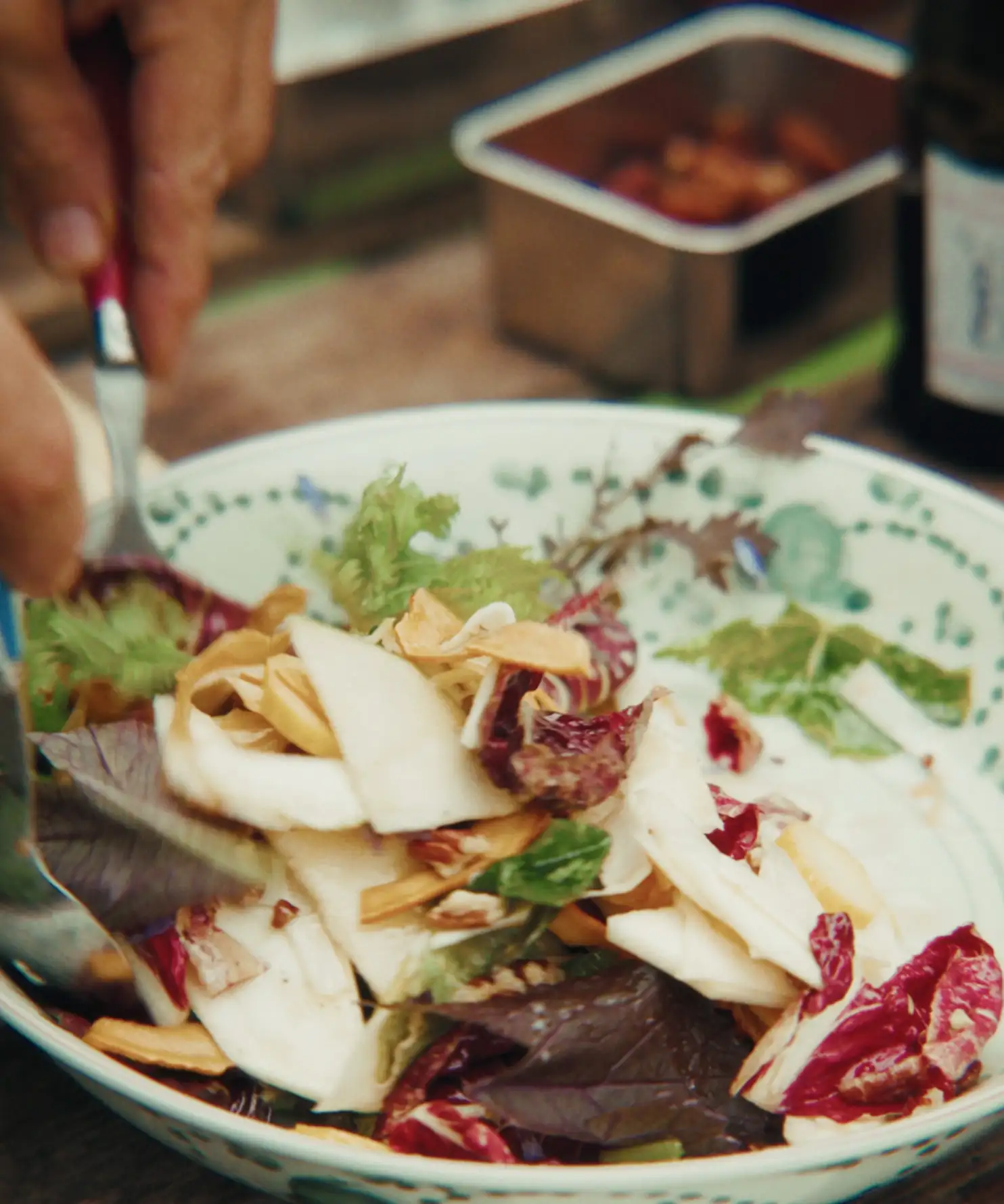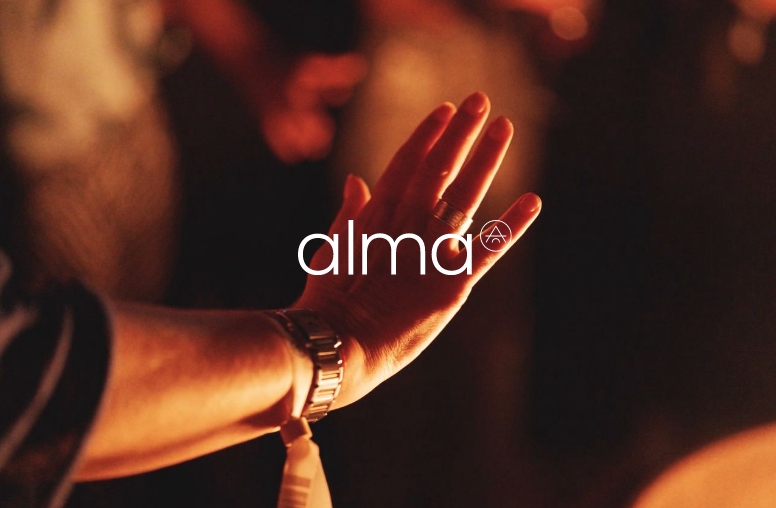JJ Martin: The Road Less Travelled
The multi-hyphenate creative director, self-confessed ‘spiritual normaliser’ and author of Vendome’s recent technicolour tribute to her adopted homeland, Mamma Milano, designer JJ Martin is a powerhouse of success, spirituality and sisterhood.
JOIN THE RITUAL. SIGN UP FOR EXCLUSIVE CONTENT, EXPERT INSIGHTS,
RITUALS, STORIES, NEW LAUNCHES & EXPERIENCES
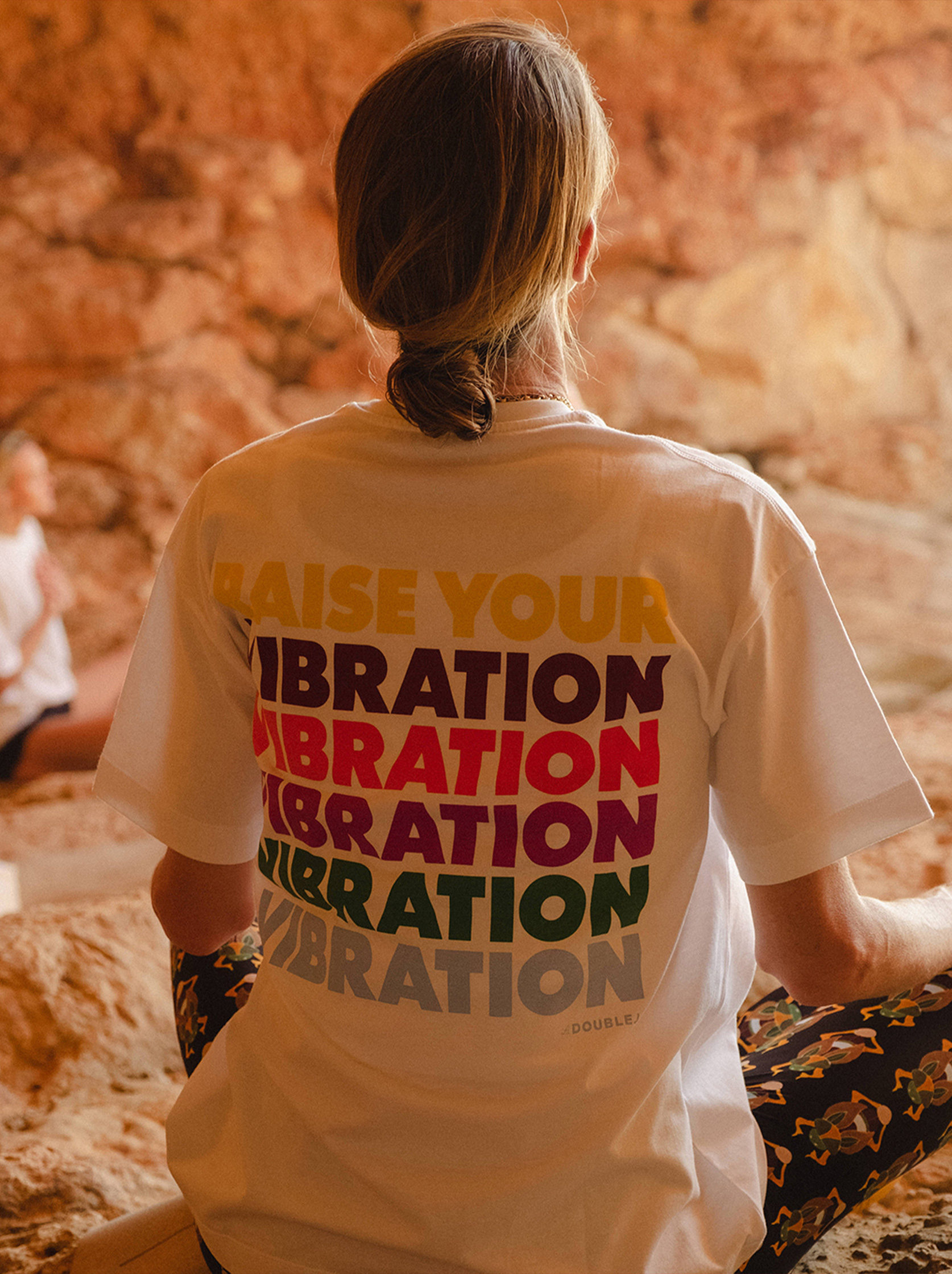
In 2001, JJ Martin left behind the relentless pace of New York City and everything it symbolised—a career in journalism at The New York Times and The Wall Street Journal, a corporate role at Calvin Klein and a life built around ambition and achievement. She moved to Italy, a country she barely understood, to start afresh.
‘I thought I knew how life worked,’ she recalls. ‘You work hard, achieve your goals, and everything falls into place. But Italy wasn’t interested in my plans.’ The transition was jarring. She didn’t speak the language, didn’t have a job, and struggled with everyday tasks like grocery shopping on Sundays when everything was closed. ‘It was like being dropped into a foreign movie without subtitles,’ she says. ‘I felt stripped of everything I’d historically used to define myself.’
Yet, the chaos became a turning point. Italy forced her to slow down, to sit with discomfort, and to embrace a life that valued feeling over doing. ‘It was my crash course in surrender,’ she explains. ‘I didn’t know it then, but it was my first encounter with the divine feminine—a concept that I had no vocabulary for at the time.’
As she adapted to life in Milan, JJ – a high school nickname that endured over time – began collecting vintage clothing and jewellery, drawn to the artistry and stories they carried. While her work as a journalist brought her into contact with celebrated designers and creatives, she found herself captivated by the unsung women of Milan—the ones quietly creating beauty outside the spotlight.
‘These women embodied something rare,’ she says. ‘They weren’t chasing fame or accolades. They were living examples of grace, creativity, and resilience.’
In 2015, she turned her passion for vintage into a website – La Double J – showcasing her finds on these same women. ‘What started as a personal project quickly grew into something I couldn’t have imagined,’ she reflects. Her brand expanded beyond vintage clothing to include original designs and homewares. Today, it’s represented in 200 stores worldwide and employs 80 people.
But for JJ, the numbers were never the point. ‘The real magic was in the community we built,’ she says. ‘It became a space for people drawn to ideas of consciousness and spirituality.’ Her spiritual practice became the foundation for everything she created. ‘It began in moments of grief and brokenness,’ she explains, referencing the loss of a parent during college and later struggles with infertility. Seeking deeper meaning, she explored plant medicine, multidimensional channelling, and shamanic rituals, meeting esekers, gurus and visionaries en route. ‘I meditate daily, not to escape, but to listen,’ she shares. ‘Sometimes it’s silence; other times, I work with archetypes like Quan Yin or Isis, imagining their energy as a light within me. It’s grounding and expansive all at once.’ Journaling, moon rituals and breathwork have also become essential practices. Through these modalities, JJ has discovered a profound truth: spirituality isn’t about seeking answers externally. ‘It’s about coming back to yourself, again and again,’ she says. ‘The divine feminine has taught me that there’s wisdom in the stillness, in the emotions and the places we resist. Inconceivable as it felt when I first arrived, it is Italy—and my spiritual practice—that transformed my life. Italy taught me to breathe, to forgive, to trust. Most of all, it taught me to love—even when it’s messy. Especially when it’s messy.’
“Spirituality isn’t about seeking answers externally. It’s about coming back to yourself, again and again.”
“Spirituality isn’t about seeking answers externally. It’s about coming back to yourself, again and again.”
In 2001, JJ Martin left behind the relentless pace of New York City and everything it symbolised—a career in journalism at The New York Times and The Wall Street Journal, a corporate role at Calvin Klein and a life built around ambition and achievement. She moved to Italy, a country she barely understood, to start afresh.
‘I thought I knew how life worked,’ she recalls. ‘You work hard, achieve your goals, and everything falls into place. But Italy wasn’t interested in my plans.’ The transition was jarring. She didn’t speak the language, didn’t have a job, and struggled with everyday tasks like grocery shopping on Sundays when everything was closed. ‘It was like being dropped into a foreign movie without subtitles,’ she says. ‘I felt stripped of everything I’d historically used to define myself.’
Yet, the chaos became a turning point. Italy forced her to slow down, to sit with discomfort, and to embrace a life that valued feeling over doing. ‘It was my crash course in surrender,’ she explains. ‘I didn’t know it then, but it was my first encounter with the divine feminine—a concept that I had no vocabulary for at the time.’
As she adapted to life in Milan, JJ – a high school nickname that endured over time – began collecting vintage clothing and jewellery, drawn to the artistry and stories they carried. While her work as a journalist brought her into contact with celebrated designers and creatives, she found herself captivated by the unsung women of Milan—the ones quietly creating beauty outside the spotlight.
‘These women embodied something rare,’ she says. ‘They weren’t chasing fame or accolades. They were living examples of grace, creativity, and resilience.’
In 2015, she turned her passion for vintage into a website – La Double J – showcasing her finds on these same women. ‘What started as a personal project quickly grew into something I couldn’t have imagined,’ she reflects. Her brand expanded beyond vintage clothing to include original designs and homewares. Today, it’s represented in 200 stores worldwide and employs 80 people.
But for JJ, the numbers were never the point. ‘The real magic was in the community we built,’ she says. ‘It became a space for people drawn to ideas of consciousness and spirituality.’ Her spiritual practice became the foundation for everything she created. ‘It began in moments of grief and brokenness,’ she explains, referencing the loss of a parent during college and later struggles with infertility. Seeking deeper meaning, she explored plant medicine, multidimensional channelling, and shamanic rituals, meeting esekers, gurus and visionaries en route. ‘I meditate daily, not to escape, but to listen,’ she shares. ‘Sometimes it’s silence; other times, I work with archetypes like Quan Yin or Isis, imagining their energy as a light within me. It’s grounding and expansive all at once.’ Journaling, moon rituals and breathwork have also become essential practices. Through these modalities, JJ has discovered a profound truth: spirituality isn’t about seeking answers externally. ‘It’s about coming back to yourself, again and again,’ she says. ‘The divine feminine has taught me that there’s wisdom in the stillness, in the emotions and the places we resist. Inconceivable as it felt when I first arrived, it is Italy—and my spiritual practice—that transformed my life. Italy taught me to breathe, to forgive, to trust. Most of all, it taught me to love—even when it’s messy. Especially when it’s messy.’
“Spirituality isn’t about seeking answers externally. It’s about coming back to yourself, again and again.”
“Spirituality isn’t about seeking answers externally. It’s about coming back to yourself, again and again.”
DON’T MISS
